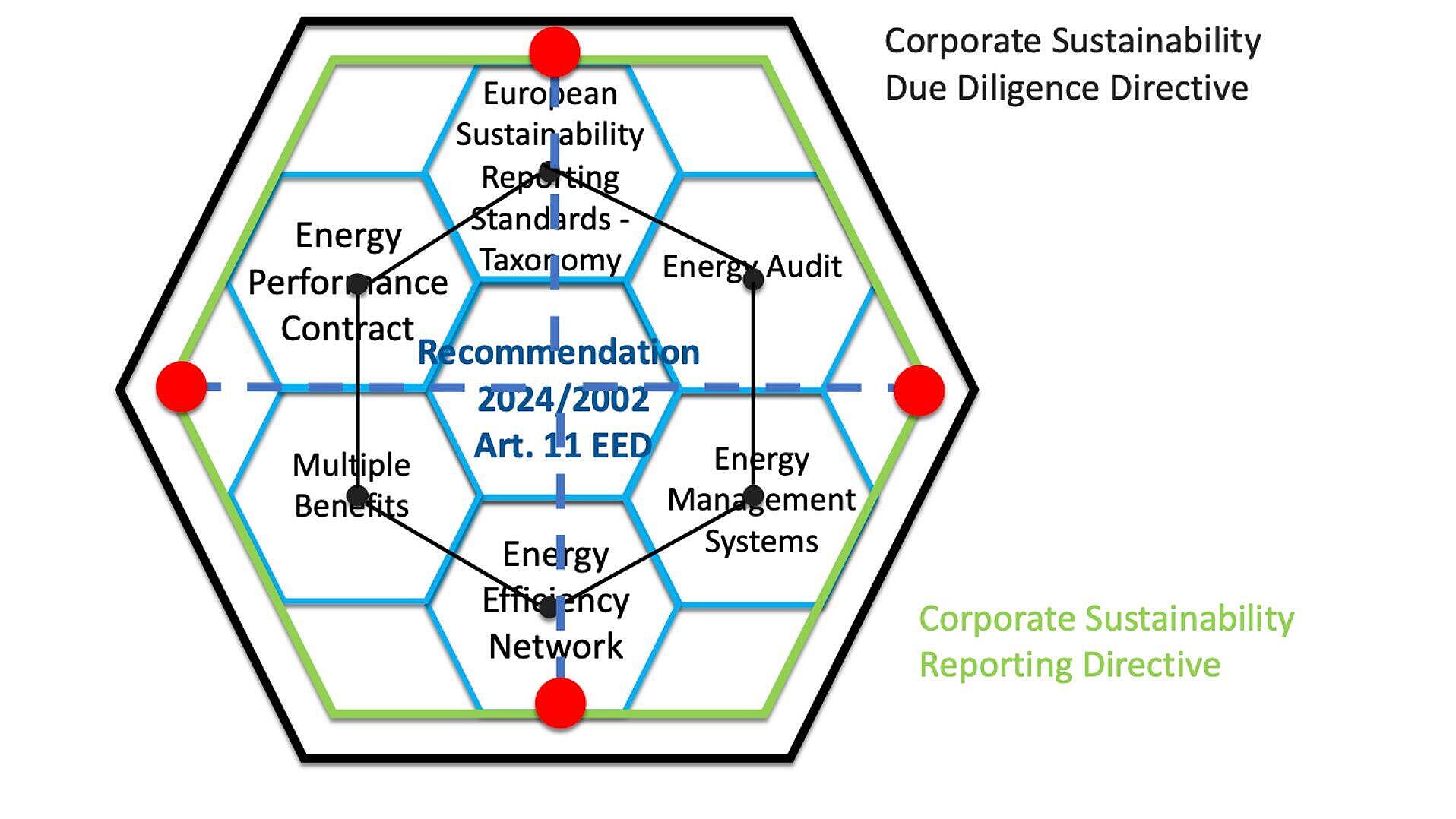 Policy & Regulation
Policy & RegulationEU Fit for 55 package: a good fit for companies performing energy management systems and energy audits?
Summary
The European Commission circulated a new set of proposals called ‘Fit for 55’
The package will deliver the 2030 climate change targets and coping with the highly popular EU Green Deal. The updated EED will make EU energy efficiency targets binding while ensuring an additional reduction of energy consumption of 9% by 2030 compared to the 2020 scenario. The key points to be highlighted are mainly two: A new amendment of the EED on Article 8 will require Member States to ensure that SMEs with an average annual consumption higher than 100TJ of energy over the previous three years will implement an energy management system. The new EED would give SMEs and non-SMEs companies the tools to implement proper energy efficiency and environmental management systems to be more efficient, save more energy and be more competitive in the market. And an amendment will require SMEs to carry out an energy audit every four years in a cost-effective manner and with quality checks.
Open full article
EU Fit for 55 package: a good fit for companies performing energy management systems and energy audits?
On 14 July 2021, the European Commission circulated a new set of proposals called ‘Fit for 55 package’ delivering the 2030 climate change targets and coping with the highly popular EU Green Deal.
The proposed package actively contributes to raise the level of ambition of the EU in the framework of climate change and the related policies, as it foresees legislative tools and actions for several critical sectors.
With the aim of making the EU Green Deal a reality, this package will apply to new and existing sectors:
- ETS (Emission Trading System);
- Effort Sharing Regulation;
- Regulation on Land Use, Forestry and Agriculture;
- Renewable Energy Directive;
- Energy Efficiency Directive;
- Revised Alternative Fuels Infrastructure Regulation;
- ReFuelEU Aviation Initiative;
- New Carbon Border Adjustment Mechanism.
Among the listed, the revision of Energy Efficiency Directive (EED) is perhaps the most important step the EU could call for, in order to make the motto ‘energy efficiency first’ applicable and effective in the policy and investment schemes. According to the Commission’s proposal, the updated EED will make EU energy efficiency targets binding while ensuring an additional reduction of energy consumption of 9% by 2030 compared to the 2020 scenario.
On the national side, this translates in double amount of energy savings obligation (established in the Article 8 of the EED) for the EU countries to meet the target and achieve new savings each year of 1.5% of final energy consumption from 2024 to 2030, up from the current level of 0.8%. These guidelines are crucial to drive energy savings in end-use sectors such as buildings, industry and transport.
Another key element of the updated EED particularly concerns the implementation of the energy management systems as a default obligation for large energy consumers, a change of the application scope of energy audits obligation from small and medium-sized enterprise (SME) definition to energy consumption.
But how do these new settlements affect energy audits and energy management systems implementation under the Article 8 of the Directive?
The key points to be highlighted are mainly two:
- A new amendment of the EED on Article 8 will require Member States to ensure that SMEs with an average annual consumption higher than 100TJ of energy over the previous three years will implement an energy management system, certified by an independent body and according to the European or International standards.
- Another amendment will require Member States to ensure that SMEs with an average annual consumption higher than 10TJ of energy over the previous three years and which have not implemented an energy management system, would carry out an energy audit every four years in a cost-effective manner and with quality checks ensuring both the validity and accuracy of the audit. Results from energy audit performance would then need to be publishes in the company’s annual report.
Energy audits should be implemented by companies in a voluntary and independent way and supervised by the Member States, a competent authority or an appointed body, like the Commission. Otherwise, when a company implements an energy performance contract, it will be exempted from the two aforementioned conditions.
Moreover, in case the company’s annual consumption does not apply to one of the above-mentioned conditions, Member States would then need to encourage SMEs and/or non-SMEs to take part to programs for carrying out energy audits and the consequent recommendations.
What does this mean in a practical way? The new EED will give SMEs and non-SMEs companies the tools to implement proper energy efficiency and environmental management systems to be more efficient, save more energy and be more competitive in the market.
For this reason, the new Fit for 55 package seems to be a good match for EU ambition as well as European SMEs, although its effective application will require the joint efforts from all European countries, from Member States to the single individuals.
Relevant Links:
- https://ec.europa.eu/commission/presscorner/detail/en/IP_21_3541;
- https://www.europarl.europa.eu/legislative-train/theme-a-european-green-deal/package-fit-for-55;
- https://ec.europa.eu/info/sites/default/files/amendment-energy-efficiency-directive-ambition-2030-climate-target-with-annexes_en.pdf;
- https://ex.europa.eu/legal-content/EN/TXT/PDF/?uri=CELEX:52013SC0447&from=ENur-le.



